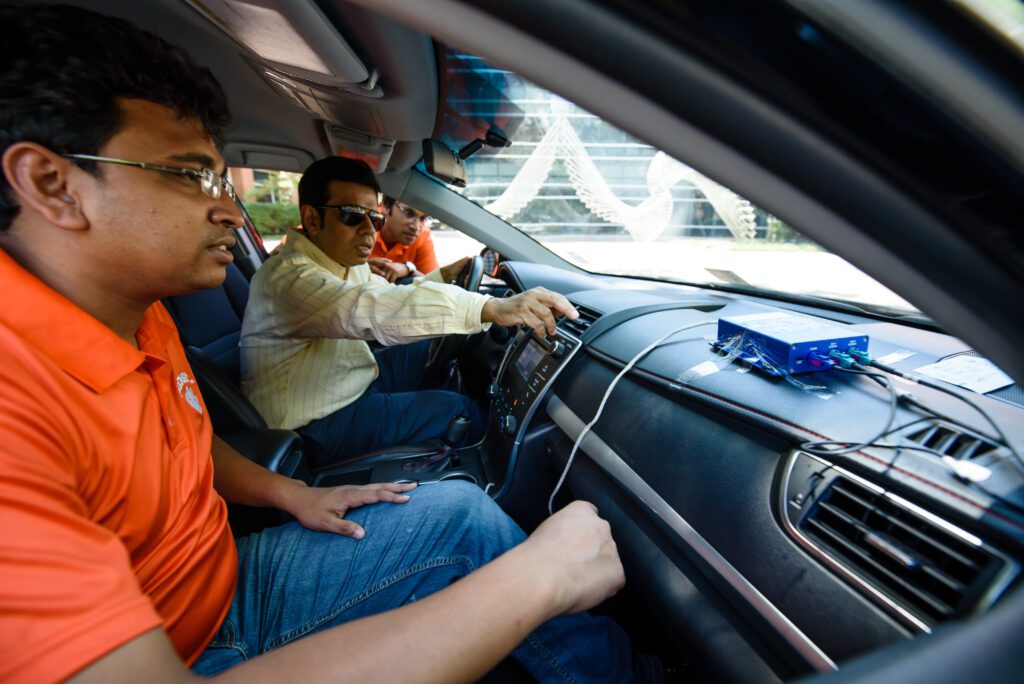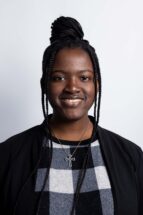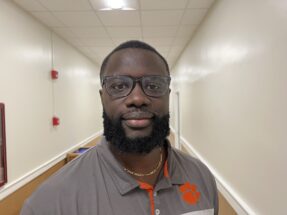Jenny Brown said that when she was studying for her civil engineering master’s degree at Clemson University, her advisor, Dr. Mashrur “Ronnie” Chowdhury, was a selfless family man who took his students to conferences and treated them to dinner.
Kindnesses large and small, along with dedication and hard work, have made Chowdhury an outstanding mentor, said Brown and others who have studied under him.
Now the nation is learning what those close to him have felt for many years. The White House in January honored Chowdhury with the Presidential Award for Excellence in Science, Mathematics and Engineering Mentoring.
“He always wanted us to succeed– that’s why I was really glad he got this award,” said Brown, now a senior civil engineer with Kimley-Horn. “He was always putting us up on the pedestal, making sure that we got the credit and that we were the stars. He always called us his superstars, but really he was a superstar leading all of us.”
Chowdhury, Clemson’s Eugene Douglas Mays Chair of Transportation, said that he enjoys teaching, mentoring and working with students. The White House award he won is among the highest in the nation for mentoring in STEM.
“When I received the award, it made me feel really good that I am making an impact,” Chowdhury said. “That is my main joy– that my work has created some impact.”
Many of the students mentored by Chowdhury have gone on to become leaders in fields ranging from the military and the corporate world to government and higher education.
Ben Bennett, who retired as a U.S. Army colonel last summer, said that before working with Chowdhury, he never considered himself much of an “academic type.” Since then, Bennett has gone to earn a Ph.D. and four master’s degrees.
Bennett said he did some of his Ph.D. work under Chowdhury while deployed to Iraq and was later able to apply it on a later deployment in Afghanistan.
“Because of my experience in my studies, my unit basically was able to put together a program that was very, very successful in saving American lives and reducing the IED threat in our area,” Bennett said. “I attribute a lot of that to my exposure to Dr. Chowdhury.”

Chowdhury said he grew up aspiring to follow in the footsteps of his father, a civil engineer whose many accomplishments in infrastructure design included construction of resilient dams in Bangladesh. Chowdhury began his own civil engineering journey by first working in the industry and later transitioning into academia.
“While doing my Ph.D. and master’s, I met fantastic professors,” Chowdhury said. “I saw how they were at the forefront of new technologies, how they were advising students and how the students were excited to be working with the professors. I thought, this is my calling– I’ll try to be a professor.
“I like to learn and develop new technologies and methods that are at the
intersections of different academic disciplines, such as cybersecurity and quantum computing, and share what I learn. This is the best job in the world for me.”
Chowdhury has passed on that passion to his students, including Ryan Fries, who now serves as a civil engineering professor at Southern Illinois University Edwardsville.
“When I came to Clemson, my intention was to get a master’s degree,” Fries said. “I had really never considered going for a Ph.D. He encouraged me to think about it and pursue that. He definitely changed my career path towards higher education, and I really enjoy working in higher ed and teaching students, so I’m really glad that he encouraged me to consider it.”
Chowdhury continues to shape the future engineering workforce by crossing the boundaries of multiple academic disciplines through his students.

Ostonya Thomas is now a civil engineering Ph.D. student at Clemson, but her history with Chowdhury goes back to when she was a Benedict College undergraduate.
She scored the highest accuracy on the final project in an online artificial intelligence workshop taught by Chowdhury. Two years later, Thomas met with Chowdhury in person to talk about graduate school, and she was surprised to find that he remembered her.
“He’s very good at seeing top talent, and he loves to bring the maximum potential out of people,” Thomas said. “He’s constantly asking ‘How can I help people?'”
Jean Michel Tine, also a Ph.D. student, said that he learned from Chowdhury that it is important for a leader to be emotionally intelligent.
“He knows each of his students,” Tine said. “All of us have different characters, different backgrounds, and he is always willing to help. It doesn’t matter what time of the night. Multiple times, we’ve been emailing each other at 11 p.m. or 1 a.m. He works.”

While mentoring students, Chowdhury has staked out a position as a national leader in cybersecurity for transportation. He was the principal investigator in 2023 on a six-year grant from the U.S. Department of Transportation that provided $20 million to establish the National Center for Transportation Cybersecurity and Resiliency (TraCR).
Chowdhury remains the center’s founding director.
“We are working on how to protect AI against cyberattacks– that will be a major problem of the future,” he said. “And that excites students. Now they have the responsibility to safeguard AI and make a significant impact in building a more cyber-secure United States in this era of open systems and
automation.”
Get in touch and we will connect you with the author or another expert.
Or email us at news@clemson.edu

